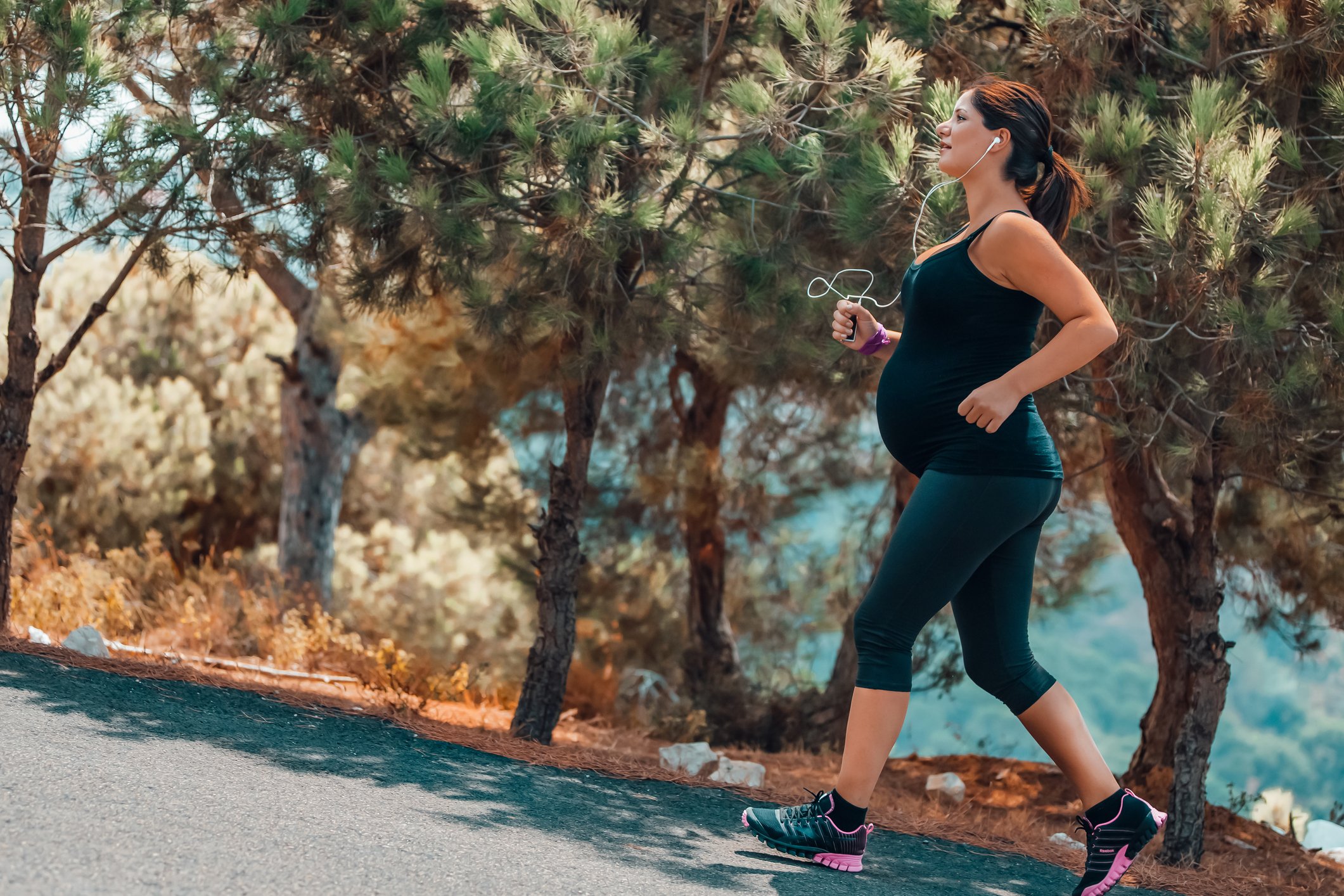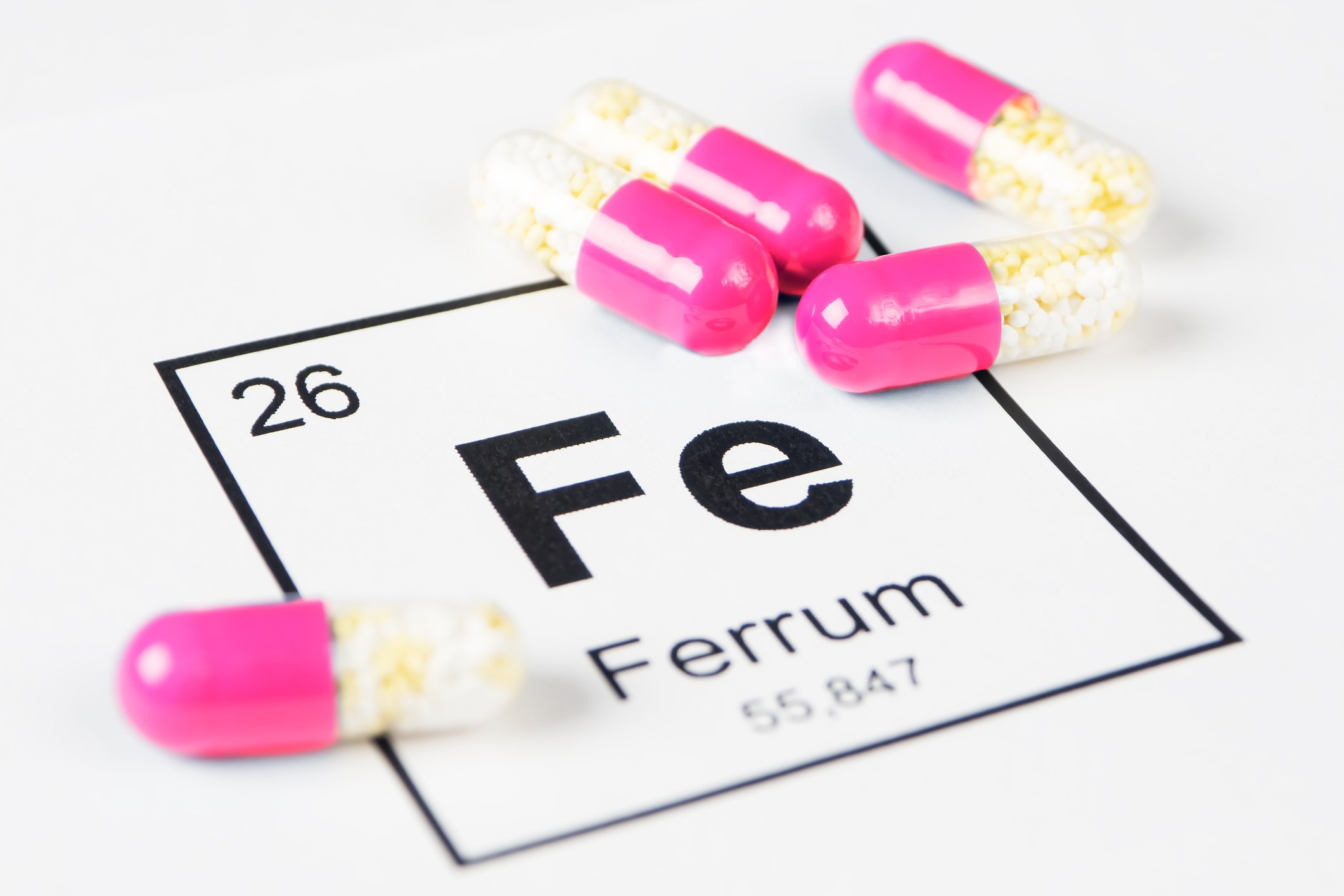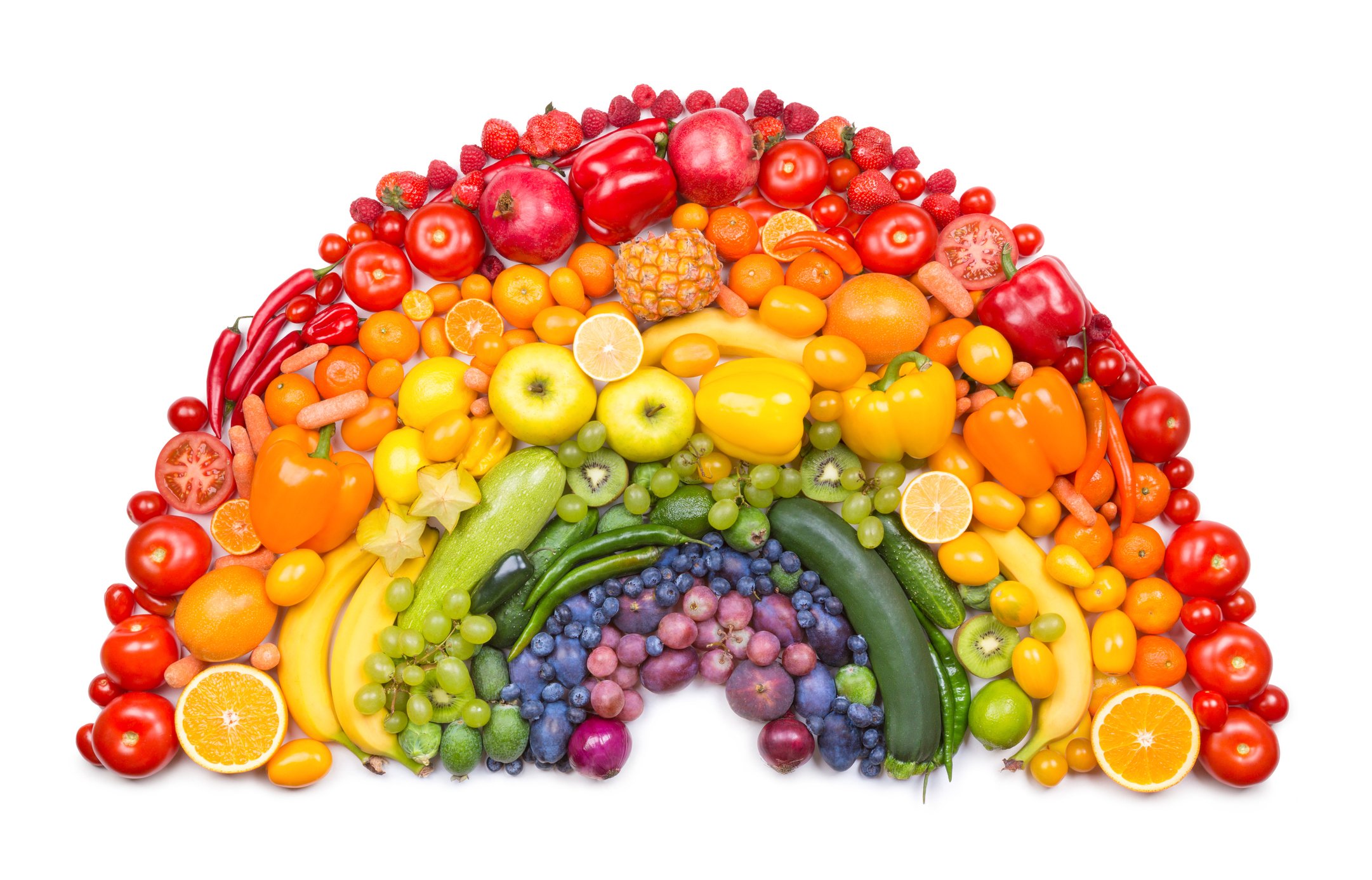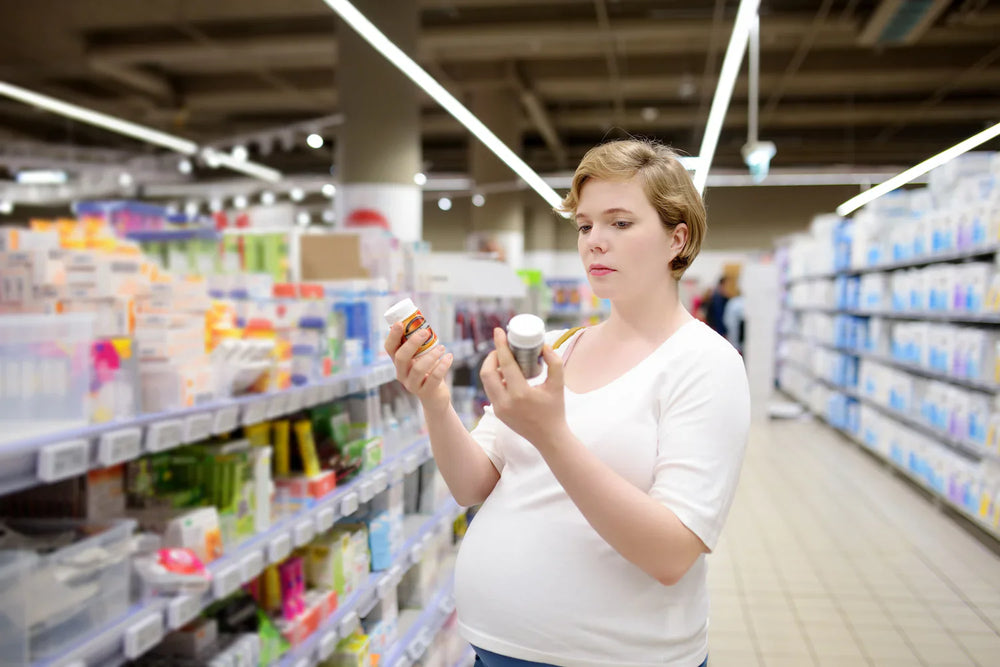Pregnancy is a great time to invest in your wellbeing and help your body provide your growing baby with all the necessary nutrients. Eating a well-balanced diet with plenty of fresh food, fruit and veg (especially green, leafy veg) is the base layer of a healthy pregnancy. Read on to learn what vitamins to take when pregnant.
Why take vitamins and supplements during pregnancy?
Even within the healthiest and most varied diet, your need for specific micronutrients grows exponentially. That is, there is a significant increase in the need for particular vitamins and minerals required by your growing baby and your body during pregnancy. This increased need can be challenging to achieve through a healthy balanced diet alone.
A great way to ensure you and your baby are getting enough of all the right elements is to take a high-quality, scientifically backed pregnancy supplement that contains all of the vital ingredients to help you have a healthy mind and body and to create a healthy mind and body for your baby.
1. Increased need for nutrients

You often hear an old wives' tale: you are ‘eating for two’. This is NOT true. Throughout pregnancy, your metabolism and body only require an increase in calories of about 300 per day (that’s a small salad sandwich to you and me). However, the need for specific micronutrients such as folate, iron and zinc can double, if not triple.
While pregnancy should never be a time of worrying about your weight gain, the average weight gain in pregnancy is about 13kg. Suppose you are concerned about your weight or BMI (Body Mass Index) before pregnancy. In that case, making an appointment to see a pregnancy specialist dietitian can be helpful - some maternity units employ one.
ALL bodies are beautiful and valuable, yet the science tells us that obesity in pregnancy can cause some real challenges for mum and that it increases the likelihood of gestational (pregnancy) diabetes, which can have adverse effects on you and your baby.
2. To support the mother’s health and wellbeing

Pregnancy is an excellent opportunity to be the healthiest you’ve ever been. It is a time in life when you have the ultimate motivation to make good choices that provide your baby with the best environment to grow in and lay the foundations for your own health post-pregnancy. You can form new habits, and new routines about exercise can begin. It is recommended, alongside having the right nutritional elements, that pregnant women aim for 150 minutes of moderate exercise per week. In easy terms, that is 5 x 30 mins of moderate speed walking.
Vitamins and supplements to take during pregnancy
A great way to lay the foundation for a healthy pregnancy is to take a pre-natal supplement that contains the essential vitamins and nutrients in the right dose.
Vitamin D3
We get vitamin D from sunlight reacting with a chemical in our skin to produce it. Because adequate access to sunlight throughout the year can prove difficult for those of us living in the Northern Hemisphere - like in the UK and Ireland - many women do not get enough of this vital micronutrient. Taking a supplement of vitamin D in pregnancy is essential to support the development of healthy bones, teeth and muscles in your growing baby and prevent vitamin D deficiency.
Vitamin C

A strong antioxidant, Vitamin C is essential for a healthy immune system. Your immune system is somewhat suppressed during pregnancy, so you must supplement your diet to ensure you are supporting it as much as possible. Vitamin C also helps your baby make collagen, a vital part of tendon and tissue health.
B Group Vitamins (Including Thiamine, Riboflavin, Niacin, Vit B6 & Vit B12)
B group vitamins have a multitude of essential roles and functions during pregnancy. These range from helping your baby to form properly and have a healthy brain and future cognitive & nerve health to helping regulate the wide variety of hormones during pregnancy & maintaining a healthy nervous system and brain in mum. Because they are water-soluble, your body cannot store them; hence a daily pregnancy supplement that contains the right amounts is a must.
Folic Acid/Folate
A daily dose of 400mcg folic acid or folate is recommended during pregnancy (or, ideally, from before conception) because optimal levels of this micronutrient can help the healthy development of your baby’s brain, stem and spinal cord – preventing conditions such as spina bifida.
If possible, start taking a folic acid supplement before conception. If this is not possible, start as soon as you find out you are pregnant and take it at least for the first trimester. Ideally, continue to take it to support you through your whole pregnancy.
Calcium, Zinc & Iodine
These essential minerals are the building blocks of a healthy pregnancy. The amount you need significantly increases as the pregnancy progresses and the baby gets bigger. If you are deficient in minerals, pregnancy can ‘leach’ these from your stores – i.e. obtain them from your bones and organs, which could adversely impact your long-term wellbeing.
Iron

The requirement for iron in pregnancy doubles and, in some cases, triples. It is an essential mineral for a healthy pregnancy. It is responsible for healthy blood and tissue formation and ensuring you have enough oxygen-carrying capacity in your bloodstream for you and your baby. Many women are already deficient without knowing it before pregnancy (approx. 25-40%). If your iron stores are low, it is almost impossible to get enough iron from food alone. A good quality supplement is recommended to complement a healthy pregnancy.
Vitamins and Supplements to Avoid
Always speak with your Midwife, Health Visitor, GP or Maternity Unit if you have any concerns, questions or need more information about what to take. Only take a pregnancy supplement specifically designed to support a healthy pregnancy. There are some ingredients which can have adverse effects during pregnancy, so look out for these and avoid pregnancy supplements containing:
- Goldenseal (a herb common in many supplements)
- Vitamin A (too much is harmful to your developing baby)
- Vitamin E (as above)
- Caffeine (can impact mineral absorption)
- Liver and Liver products (contain very high amounts of Vitamin A)
- Anything unpasteurised
- St John’s Wort
- Mugwort
- Red Clover
- Yarro
Diet in Pregnancy

As previously stated, you don’t need to double the amount you eat but only increase by about 300 calories/day! A good rule of thumb is to have as many rainbow colours as possible on your plate. This is an easy way to try and achieve a healthy, varied diet. A portion of food is roughly the size of the palm of your hand. Alongside a good pregnancy supplement containing all the micronutrients to support a healthy pregnancy, you should aim to drink at least 2.5 litres of water a day or more during hot weather.
Challenges
It can be problematic during pregnancy to always make the right decisions, particularly if you have morning sickness, hyperemesis, other children, or a job! Don’t beat yourself up. Remember, it is perfectly ok not to be perfect. Taking a good quality supplement means you are on the right road and giving your baby and body the vital minerals and vitamins for pregnancy.
Particular groups need to supplement. These groups include those on a restricted diet – for example, vegetarian or vegan – those carrying multiple pregnancies, those having pregnancies close together or those with absorption issues, such as a history of Chron’s disease or eating disorders.
Getting Support In Your Pregnancy Journey
To support you in your pregnancy journey, we have also produced 2 brilliant e-books, one for the first 20 weeks of pregnancy and one for the last 20 weeks. Don’t forget to take the right supplement. My Expert Midwife have developed a comprehensive All-In-One Pregnancy Supplement to support you from pre-conception and throughout pregnancy. You are already making a great choice. You are already halfway there by informing yourself about the right nutrition choices, pregnancy vitamins and minerals to take during pregnancy.


















